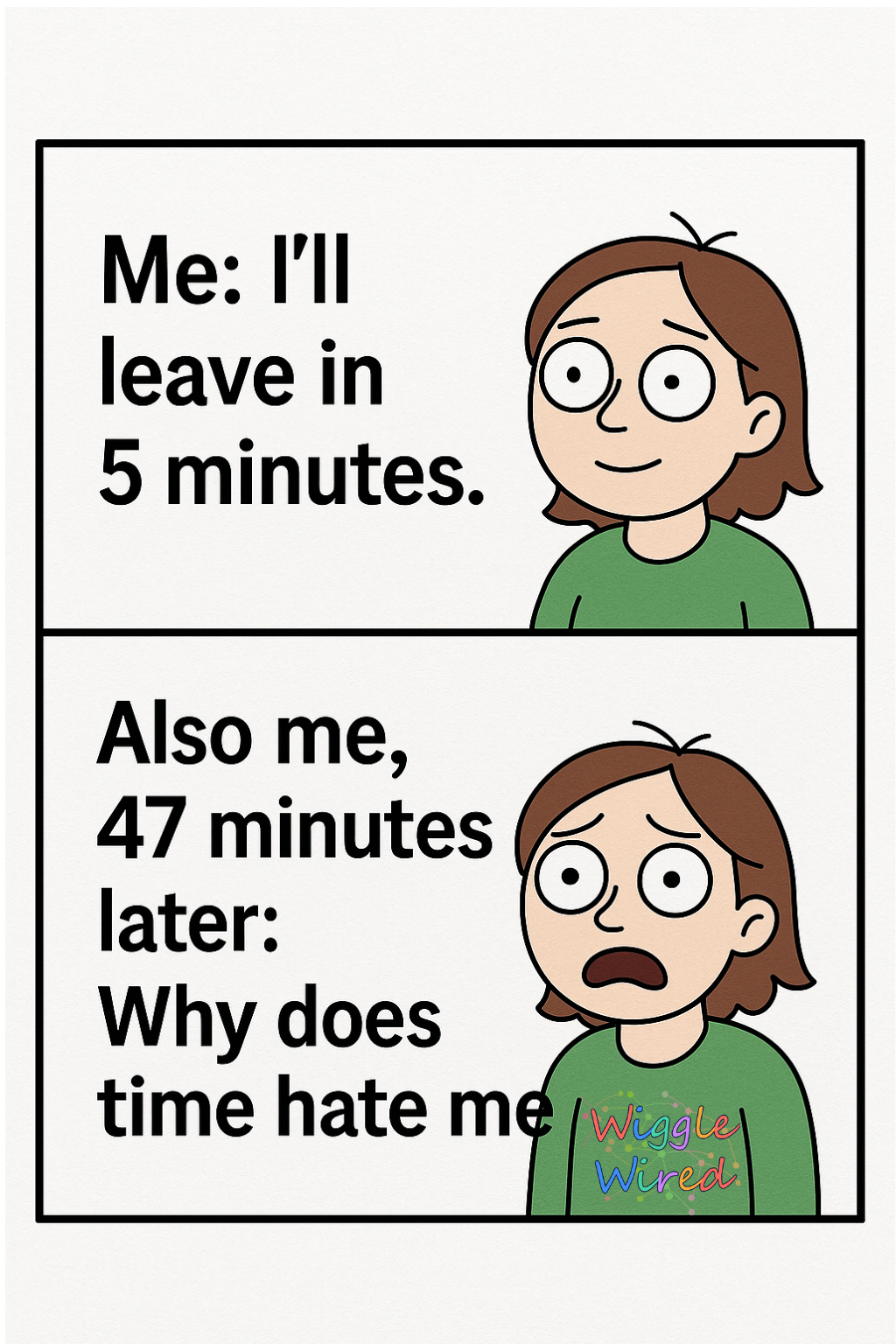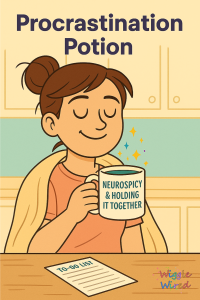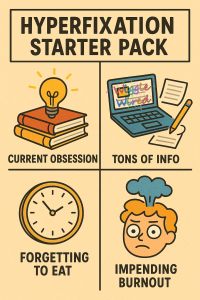When Time Stops Making Sense
If this sounds familiar, you’re not alone.
For many neurodivergent people, time doesn’t tick in tidy little boxes. It slips, jumps, collapses, and sometimes… disappears altogether.
You meant to leave. You really did.
But somewhere between “just one more scroll,” and “wait, where are my keys,” time vanished – and suddenly it’s almost an hour later.
💡 What Is Time Blindness?
Time blindness is a very real part of many neurodivergent experiences – especially for people with ADHD and autism. It makes it hard to:
- Sense the passing of time
- Estimate how long something will take
- Transition between tasks
- Stay aware of deadlines or routines
It’s not laziness.
It’s not flakiness.
It’s a brain running on a rhythm that doesn’t match the clock.
That’s why reminders, alarms, and calendars often aren’t enough – because if your brain can’t feel time, it’s easy to lose track of it.
⏱️ WiggleWired Recommends:
TickTime Pomodoro Timer – Flip, Set, Focus
👉 View it here (Amazon affiliate link)
This tool is like a gentle tap on the shoulder from reality.
You just flip it to the side that matches your task time – 5, 10, 25 minutes – and go. No app. No distractions. Just a simple way to see and feel time again.
✅ Helps manage transitions
✅ Encourages healthy breaks
✅ Great for schoolwork, cleaning sprints, work blocks, and getting ready on time (ish)
🧠 Bottom Line:
If your brain doesn’t play by the same time rules as everyone else, that’s not a failure.
That’s neurodivergence.
And with the right tools, you can create routines that work with your brain instead of against it.
You’re not late on purpose.
You’re just working with a different kind of clock.
And that’s okay.







